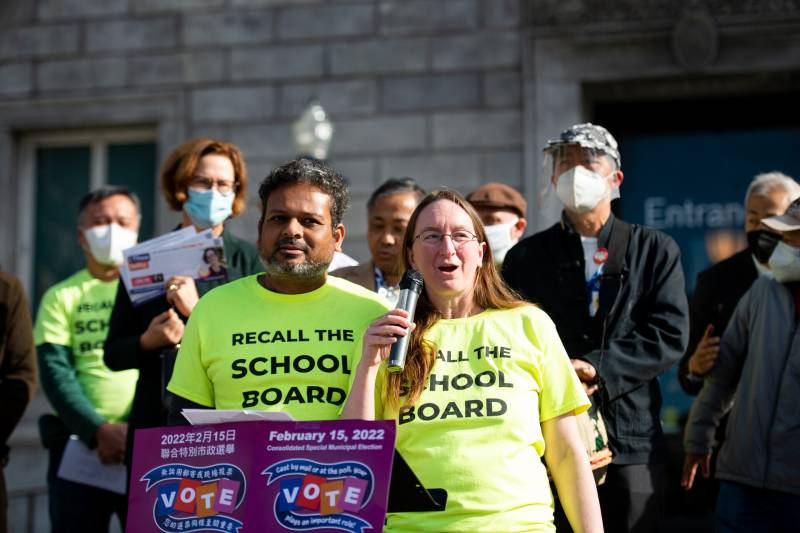The campaign to recall three San Francisco school board members in a Feb. 15 special election is vastly outspending its opponents, according to filings made public on Thursday.
With just over a week until voting ends, the financial advantage of the pro-recall campaign, which is made up of two separate committees, has enabled it to flood San Francisco mailboxes, airwaves and even streaming platforms like Hulu with arguments to remove board members Alison Collins, Gabriela López and Faauuga Moliga from office.
Through the end of last week, those two committees reported spending a total of $1.75 million, nearly half of that in January alone. Meanwhile, the two separate anti-recall campaigns (one solely fighting the removal of Moliga) collectively spent just $68,110.
Recall supporters started campaigning much earlier than their opponents, giving them a major head start in building a financial war chest. The first of the pro-recall groups, led by Autumn Looijen and Siva Raj, raised cash beginning in the spring of 2021, from a mix of wealthy venture capitalists and small-dollar donors, helping them pay for an army of signature gatherers to qualify the three recall questions for the ballot.
By contrast, the two campaigns opposing the recall didn’t begin raising money in earnest until November.

